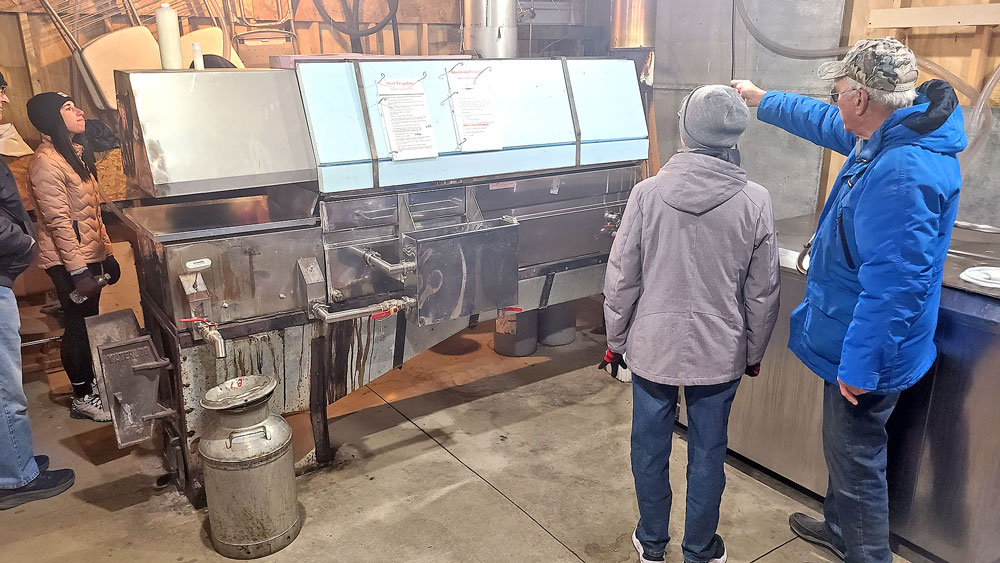Lindaman trial moved to Hampton, set for Oct. 30


By Bob Steenson, bsteenson@charlescitypress.com
The retrial of Douglas Lindaman will likely take place the end of October in Hampton, a judge decided at a hearing Monday morning, and Lindaman said he will assist in his own defense.
A motion for a change of venue was among many motions made by Lindaman since the end of May when his April 2016 conviction on third-degree sexual abuse was overturned by the Iowa Supreme Court and the case sent back to Floyd County District Court for retrial.
Judge Gregg Rosenbladt, who also heard the case originally last year, noted that press coverage about the case has been extensive and that Floyd County Attorney Rachel Ginbey had not resisted the motion for change of venue.
The judge dealt with two other topics before the venue decision.
First, Rosenbladt spent considerable time discussing with Lindaman whether he would be represented by counsel, or whether he would represent himself.
Although Lindaman has a law degree, he hasn’t practiced law since 1989 when he lost his license.
Lindaman had represented himself at his trial in April 2016, and that was the basis for the Iowa Supreme Court reversing the conviction.
The Iowa Supreme Court ruled that the district court had not adequately assured Lindaman’s decision to represent himself was “intelligent and knowing” and the court had not fulfilled the legal requirements that had been established in a case known as Faretta v. California.
“The case on appeal was reversed and remanded due to some issues with record of waiver of counsel,” Rosenbladt said Monday morning, “so I thought what I would do today is run through, thoroughly, the waiver of counsel on the record, and then we’ll get Mr. Lindaman’s input as far as counsel.”
After asking Lindaman a series of questions about his background and understanding of trial court procedures, Rosenbladt asked Lindaman if he understood he had a right for an attorney to fully represent him during the trial.
Lindaman responded that the definition of “fully represent” was misleading to him, saying, “My problem is, as a defendant, if the attorney won’t allow you to speak to the judge, won’t allow you to go into chambers, you’re not being adequately represented.
“There are times that you need to be in first chair on these matters,” he said. “So, yes, I appreciate and acknowledge the need for legal counsel, but I wish to be able to address the jury, address witnesses and address the judge whether my legal counsel approves of it or not.”
“So you do want some involvement as counsel?” Rosenbladt asked.
“Yes,” Lindaman said.
Rosenbladt said the court had appointed William T. Morrison, an attorney from Mason City, to serve as standby counsel to Lindaman. Morrison was attending the hearing via speakerphone, and Lindaman said he had no objection to Morrison as counsel.
“What it is you would like your standby counsel to do in this matter?” Rosenbladt asked Lindaman.
“Basically, my knowledge of rules of evidence has been weak over the past 30 years,” Lindaman said. “I think I’ve laid out preliminary issues that need to be addressed. His assistance would be useful in presenting those issues as backup to make sure that I haven’t missed any points in handling jury selection, in handling a witness — that would be my expectation.”
In explaining to the judge his understanding of the charges against him, Lindaman said the charge is a serious felony with a mandatory sentence of up to 10 years in prison if convicted, and the case would involve a lot of “he said-he said” testimony and involves “a record that in the defendant’s position has been tainted or tampered with, which is, I think, central to this case.”
“This case will involve handling issues which are usually steeped in prejudice involving sexual orientation, and therefore jury selection and witness cross-examination will be critical to ascertain that prejudice and corral it so it does not become a factor in the proceeding,” Lindaman said.
Rosenbladt said, “This is very important, so I don’t want to put any words in your mouth. You are waiving representation up to a point because you would like a standby counsel to assist you on certain things, but you would like the ability yourself to participate in jury selection, to testify, perhaps question witnesses, is that correct?”
Lindaman said the judge’s phrasing was correct and he didn’t plan to slow down his counsel and his counsel would have a free hand in any of the functions of the trial.
“I’m just not going to be blindsided again in not being able to address the jury, address the witnesses, before or after my own counsel has done so,” he said.
Morrison said over the phone, “I think Mr. Lindaman has laid out a reasonable approach and I would be able to work with him in a complementary manner.”
Lindaman agreed to waive his right to a speedy trial to allow Morrison to get caught up on all the issues in the case, so that reduced the urgency in finding a location for the change in venue, Rosenbladt said.
The judge said his first preference would be to move the trial to Clarion in Wright County, but that courtroom was going to be undergoing extensive remodeling.
After checking with a court scheduler, he said the Franklin County courtroom in Hampton would be available and set the date for the trial to begin at 9 a.m. Oct. 30.
Rosenbladt asked Lindaman and Ginbey if there were other motions that needed to be decided immediately, or if they could wait to another motion hearing he set for 1 p.m. Monday, Sept. 11.
Ginbey said if the judge was going to approve Lindaman’s motion to reopen discovery it should happen “sooner than later,” because witnesses would have to be contacted and times set up for depositions.
Lindaman was charged in 2015 with having sexually touched a 17-year-old boy in 2011, after hiring the boy as a farmhand. Lindaman argued at his first trial that he touched the boy “therapeutically” to help him get over a “blocked physiological disorder” and that the touch was not sexual and therefore not criminal.
Lindaman was convicted at a jury trial April 12, 2016, in Charles City, on one count of sexual abuse in the third degree, and sentenced to serve up to 10 years in state prison.
He was serving that sentence in the Newton Correctional Facility when a three-justice-panel of the Iowa Supreme Court reversed the conviction and remanded the case for retrial on May 19.
Lindaman was transferred to Floyd County and released on $10,000 bond on June 6.









Social Share